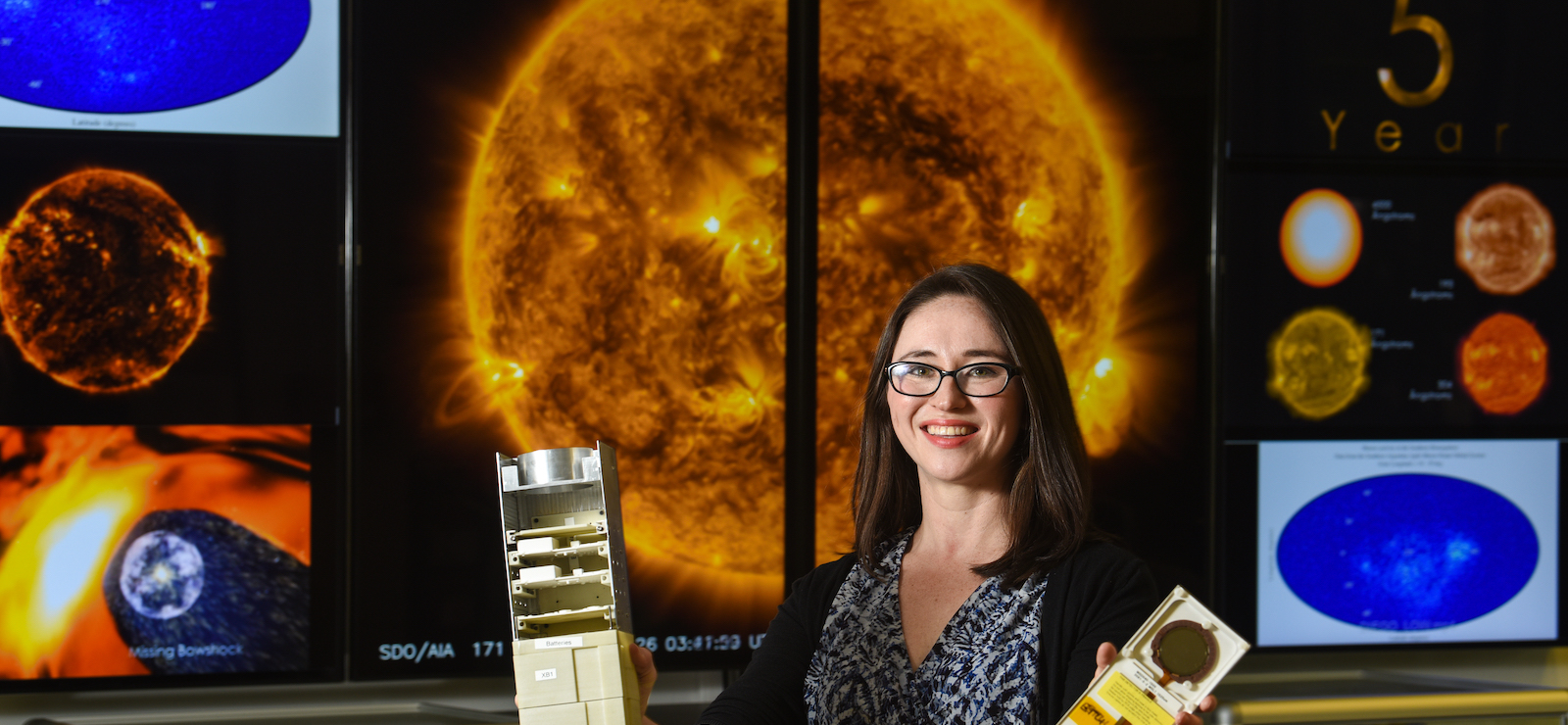Over nearly three decades, The Catholic University of America has built a strong research partnership with NASA Goddard Space Flight Center, using our agility and proximity to NASA Goddard to support NASA’s mission.
- 135 Catholic University employees currently work at NASA Goddard. This figure does not include our many alumni who have gone on to work there, too.
- In just six years, Catholic University’s NASA-related research expenditures have more than tripled, growing from $8 million to $27 million.
- Catholic University is the lead institution on a $64 million cooperative agreement with NASA to support the scientific and technical program of NASA Goddard’s Heliophysics Science Division (HSD). The primary objective of the agreement—called “PHaSER” (Partnership for Heliophysics and Space Environment Research)—is to help recruit, hire, and train high-quality scientists and students to work in cooperation with NASA’s HSD scientists, enhancing the division’s capability to conduct a broad and vigorous space science research program.
- Catholic University is also a member of the NASA-funded CRESST II (Center for Research and Exploration in Space Science and Technology II) collaboration, led by the University of Maryland, College Park. CRESST II scientists work directly with NASA scientists to support operating missions, conduct scientific research, develop instruments, and design future missions.
- Catholic University’s relationship with NASA has provided our students with research and career opportunities in astrochemistry, solar system research, and the study of other galaxies, as well as astronomical instrumentation. These opportunities also nurture early-career scientists and newly minted Ph.D. scientists. Research opportunities have included working on the Lunar Reconnaissance Orbiter and on NICER, an x-ray detector that sits on the International Space Station, as well as working with data from the Mars rover Curiosity, and studying moon rocks brought back from the Apollo missions that have been sealed away for 50 years waiting for new analysis technology.

